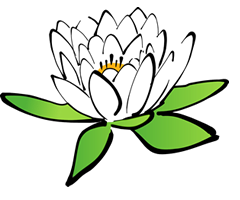一、which的用法四种句型
which的用法四种句型如下:
1.which哪个、哪一个
which用作疑问形容词时,表达选项数目固定或是有限的选项。
例:Which time suits you better, 11:30 or one o’clock?
哪个时间你更方便——11点半还是1点?
例:Which is mine? The smaller one?
哪个是我的?小一点的这个?
例:Which of these jackets do you prefer?
这几件夹克你比较喜欢哪件?
2.which用作关系代名词(接在逗号后面)
which当成关系代名词使用时,用于为前面的从句补充额外资讯,通常用于逗号之后。若which接在逗号后面,which指的是逗号前面所描述的整个事件。
例:He showed me round the town, which was very kind of him.
他带我参观了这个城镇,他真是太好了。
例:She invited us to dinner, which was very kind of her.
她邀请我们吃晚饭,她人真客气。
3.which用作关系代名词(前面无逗号)
若which前面无逗号,则which指的是前面提到的事物。
例:The museum which we visited yesterday is the biggest in the city.
我们昨天拜访的博物馆是这城市里最大间的。
例:It’s a disease which affects mainly older people.
这疾病主要感染的是老人。
4.which的限定用法与非限定用法
which当作关系代名词时,要特别注意限定用法与非限定用法。
例:Tom has a cat which can sleep all day.
汤姆有一只可以睡整天的猫。
说明:which前面没逗号,所以which指的是”猫”,表示汤姆可能有很多猫,而这里指的是整天在睡觉的那只猫。这是限定用法。
例:Tom has a cat, which can sleep all day.
汤姆有一只猫,可以睡整天。
说明:which前面有逗号,所以which指的是“汤姆有一只猫”,表示汤姆应该只有这只猫,而这只猫可以睡整天。这是非限定用法。
二、which后面动词什么形式
如果which是疑问句的主语,后面应该用动词的单数第三人称形式;如果which在从句中做关系代词,后接动词形式与先行词一致。
关系代词which在从句中作主语时,从句的谓语动词的人称和数须和先行词一致。扩展资料
先行词是第三人称单数,which后面的谓语动词就用第三人称单数形式;先行词是复数,which后面的谓语动词就用复数形式。
例:
1、Wheatisaplantwhich(that)isgrowninthenorthofChina.小麦是一种在中国北方生长的.植物。
这里被修饰的先行词是a plant(一种植物),先行词是单数,所以which后面的谓语动词和先行词保持一致用单数is。
2、I've read many books which give me lots of knowledge.我读过许多书,这些书给了我很多知识。
这里先行词是many books,先行词是复数,所以which后面的谓语动词和先行词保持一致,使用复数形式give。
which的用法:
1、在后置的非限制性定语从句中代替上文出现的事物或情况(单数或复数)。
2、在问句中作为疑问代词,在名词从句中作为连接代词用,其含义为“哪个、哪些”。
3、如果非限制性定语从句的先行词不是指主句内容,而是指具体的人、时间、地点,则不用which。
4、在定语从句中,关系代词that和which指物时,一般没有区别,但下列几种情况中不能互换:
(1)当先行词是all,everything,nothing,anything,little等不定代词,或被first,last,only,few,much,some,any,no等词修饰时,或者先行词为形容词最高级所修饰,或者并列的两个先行词分别表示人和物,要用关系代词that不用which。
(2)在强调句型“It is〔was〕...that〔who〕...”中,只能用that,不能用which。
(3)同位语从句除了用whether,what,why等引导外,通常还用that引导,但不用which。
(4)当定语从句由介词加上关系代词来引导时,该关系代词代替的是物而不是人时,不能用that,只能用which。
(5)非限制性定语从句所修饰的是物或是整个主句时,关系代词用which,不用that。
三、which引导的是什么从句
是主语从句。
不用虚拟语气。在主语从句中,为了防止句子头重脚轻,通常把形式主语it放在句首位置,真正主语搁置于句末用it作形式主语的结构,如下:
1、主语从句常用it作形式主语,一般常用句型为:It is+{名词/形容词/过去分词}+主语从句。
2、强调句则不同,它的结构是:It+be+被强调部分+that+从句。
3、It is+名词+that从句。
4、It is+形容词+that从句。
宾语从句的引导词有三种情况:
(1)引导陈述意义的句子用that,无实际意义,口语中可以省略。
(2)表示“是否”的意义时用whether或if(当句中有or是只能用whether而不用if)。
(3)引导特殊疑问句意义的句子时用特殊疑问词who, whose, whom, which, what, when, where,或how。
四、which的用法总结
在英语中,我们会常常用到which这个单词,了解which的意思和用法,以便自己今后更好地运用它,那么which的用法有哪些呢?下面是我给大家带来的which的用法总结 _which的用法例句,以供大家参考,我们一起来看看吧!
▼目录▼
★ which的释义★
★ which的用法★
★ which的例句★
★ which的短语★
★ in which的用法★
▼ which的释义
adj.哪一个;哪一些
pron.哪一个;哪些
▼ which的用法
★定语从句的关系代词 Which的用法:若先行词指物则代替先行词在定语从句中充当主语或宾语.
This is the pen which was given by my friend.
先行词指物代替先行词在定语从句中充当主语
This is the pen which my friend gave to me.
★先行词指物代替先行词在定语从句中充当宾语
下面是它和that在定语从句中的区别及用法:
★ that \which在代物时常常可以通用,但有时只宜于用which,不用that
(1)关系代词前有介词时.
This is the hotel in which you will stay.
(2)如有两个定语从句,其中一句的关系代词是that,另一句宜于用which.
Let me show you the novel that I borrowed from the liberary which was newly open(新开放) to us.
★ that \which在代物时常常可以通用,但有时只宜于用that,不用which.
(1)先行词是形容词最高级或者它的前面有形容词最高级时
This is the best that has been used against air pollution(反对空气污染) in cities.
English is the most difficult subject that you will learn during these years.
(2)先行词是序数词,或它的前面有一个序数词时
He is the last person that I want to see.
(3)主句中已有疑问词时
Which is the bike that you lost?
(4)先行词既有人又有物时
The bike and its rider that had run over(撞倒了)an old man were taken to the police station.
(5)先行词是all,much,little,something,everything,anything,nothing,none,the one等代词时
You should hand in all that you have.
We haven’t got much that we can offer you.
I mean the one that you talked about just now.
(6)先行词前面有only,any,few,little,no,all,one of,the same,the very等词修饰时
The only thing that we can do is to give you some money.
Li Ming is the only one that got full marks(满分)in our class.
Li Ming is one of the students that want to be teachers in our class.
(7)有两个定语从句,其中一个关系代词已用which,另外一个宜用that
Edison built up a factory(办了一个工厂) which produced things that had never been seen before.
★定语从句的关系副词 Where的用法:若先行词指地点且其在定语从句中充当地点状语.
This is the house+I was born in the house.(=I was born there)
介词短语副词
=This is the house where I was born.这就是我在那儿出生的房子.
先行词关系副词
in which I was born.
介词+关系代词
which I was born in.
关系代词
这里作介宾的which和that可以省略
★ that I wos born in charge的用法:
1.用作名词,注意以下用法:
(1)表示“收费”,是可数名词,通常(但不一定)用复数形式。如:
Your charges are too high.你收费太贵了。
What is the charge in the hotel?/ What are the charges in the hotel?这旅馆收费多少?
(2)表示“负责”、“管理”,通常为不可数名词。如:
Doctors have charge of the sick people.医生负责照顾病人。
Soon he will take charge of the department.他很快会来负责管理这个部门。
区别并比较(有 the表被动,无 the表主动):
这个工厂由格林先生负责。
Mr Green is in charge of this factory.
This factory is in the charge of Mr Green.
(3)表示“控告”,是可数名词。如:
They made a charge against the boss.他们控告老板。
He was arrested on a charge of murder.他因谋杀罪被逮捕。
2.用作动词,无论是表示“收(费)”、“索(价)”还是“控告”等,都是及物动词。用法上注意:表示“收(费)”,通常与介词 for连用,并且可以带双宾语;而表示“指控”通常与介词 with连用。如:
He charged me 100 dollars for this coat.这件外套他要我一百美元。
The driver was charged with speeding.司机被控超速驾车。
比较:They charged me with robbery./ They charged robbery against me.
★ character的3个主要用法解析:
1.表示人的“性格”或“品质”,或表示事物的“特性”或“特征”等,可用作可数或不可数名词。如:
They are twins but have quite different characters.他们虽为双胞胎,但性格却相当不同。
He has a strong character./He is a man of strong character.
他有坚强的性格(他是个性格坚强的人)。
2.表示小说或戏剧等中的“人物”或“角色”,是可数名词。如:
Who is the main character in the play?这出戏中的主要人物是谁?
His characters are well drawn.他作品中的人物刻画得很好。
有时指“人”,根据语境有时有褒义(如指有个性的人等),有时有贬义(如指古怪或令人讨厌的人等)。如:
He is quite a man.他真是个怪人(他这人真有个性)。
3.表示“文字”,指书写符号或印刷符号等,是可数名词。如:
He writes beautiful characters.他能写一手漂亮的字。
くくく
▼ which的例句
Your claim ought to succeed, in which case the damages will be substantial.
你的索赔应该会成功,如果是这样,赔偿金额会很大。
The courts can refuse to admit police evidence which has been illegally obtained.
法庭可以拒绝承认警方非法获得的证据。
The commission gave the case a prominence which it might otherwise have escaped.
委员会把这一案例列入重要议程,否则它可能已被忽略。
The harsh dissonances give a sound which is quite untypical of that period.
刺耳的不谐和音发出的声音不能代表那个时期的音乐风格。
A mind which is affected by stress or tension cannot think as clearly.
头脑紧张就无法清晰地思考。
It's a pleasure to reward them for work which might otherwise go unmarked.
很高兴在此奖励他们所做的,而在其他情况下可能未被注意的工作。
Arctic skuas which dive at your head as you walk near their territories.
当你走近它们的地盘时会向你的脑袋俯冲的北极贼鸥。
The family is usually a source of encouragement from which affirmative influences come.
家庭通常是鼓励的源泉,能给予家庭成员积极的影响。
The task demands skills which cannot be presumed and therefore require proper training.
这一任务要求的不是想当然的技术,因此需要足够训练。
A series of incidents which marked a new phase in the terrorist campaign.
标志着恐怖活动进入新阶段的一系列事件。
くくく
▼ which的短语
which is which
(分清楚)哪个是哪个
every which way
四面八方,向各处
not know which way to turn
不知该怎么办;彻底地迷惘
see which way the cat jumps
观望形势
not know which where to turn
不知该怎么办;彻底地迷惘
know which side one's bread is buttered on
明白自己的利益之所在;善于为自己打算
tell t'other from which
区分;辨别;分清
know which side one's bread is buttered
明白自己的利益之所在;善于为自己打算
not which way to look
尴尬;不知所措
which is
哪个是;(定语从句句型)
which one
哪一个;哪一;哪一种
no matter which
无论哪个;不论;不管这...
know which side your bread is buttered
知道自己的利益所在
see which way the wind is blowing
看看风向;观察势头;摸清可能发生的情况
くくく
▼ in which的用法
in which只能用在定语从句中,等于where,在定语从句中作状语。
比如:He lived in the house in which Tom once lived;He lived in the house where Tom once lived.
くくく
which的用法相关文章:
★ which的用法总结
★关于which的用法及解释
★定语从句中which的用法
★ which的常见用法归类
★从句中which的用法从句如何使用which
★ which的特殊用法详解
★从句中which的的正确用法是什么
★ which在定语从句中的用法
★ which在非限定性定语从句的用法
var _hmt= _hmt|| [];(function(){ var hm= document.createElement("script"); hm.src=""; var s= document.getElementsByTagName("script")[0]; s.parentNode.insertBefore(hm, s);})();